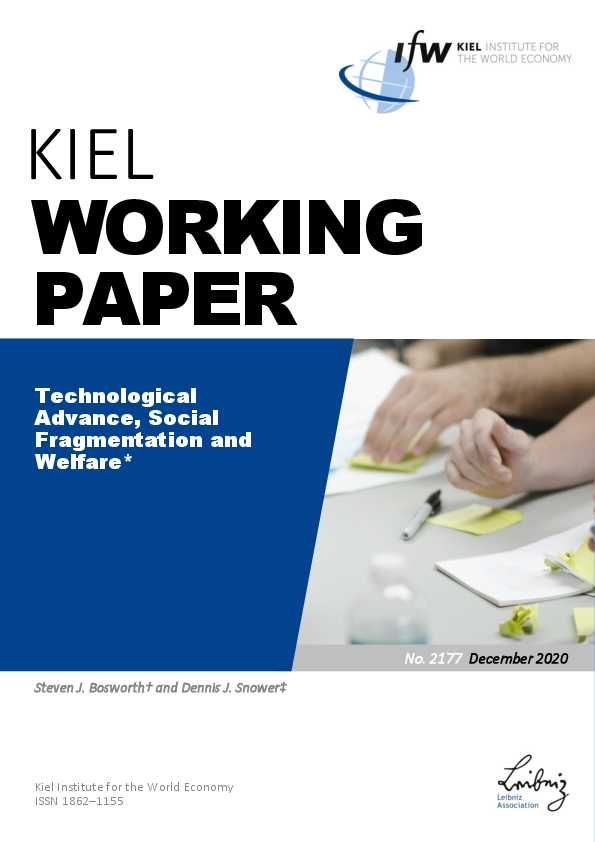Technological Advance, Social Fragmentation and Welfare
Autoren
Erscheinungsdatum
JEL Classification
Wohlfahrtsstaat
This paper models the welfare consequences of social fragmentation arising from technological advance. We start from the premise that technological progress falls primarily on market-traded commodities rather than prosocial relationships, since the latter intrinsically require the expenditure of time and thus are less amenable to productivity increases. Since prosocial relationships require individuals to identify with others in their social group whereas marketable commodities are commonly the objects of social status comparisons, a tradeoff arises between in-group affiliation and inter-group status comparisons. People consequently narrow the bounds of their social groups, reducing their prosocial relationships and extending their status-seeking activities. As prosocial relationships generate positive externalities whereas status-seeking activities generate negative preference externalities, technological advance may lead to a particular type of “decoupling" of social welfare from material prosperity. Once the share of status goods in total production exceeds a crucial threshold, technological advance is shown to be welfare-reducing.



